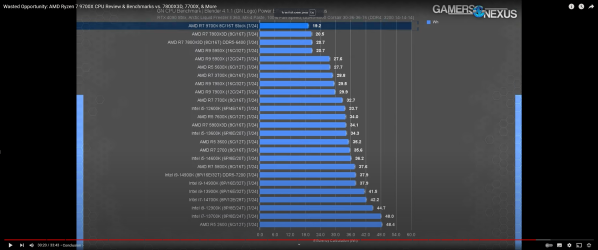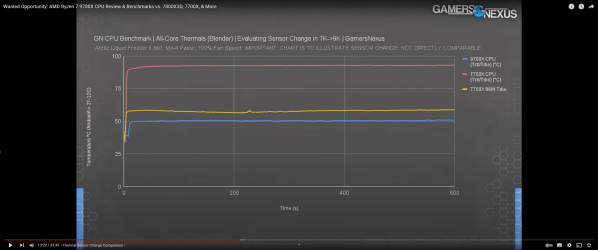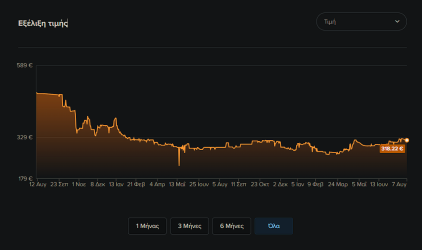Its not going to beat the 7800X3D in gaming but we knew that...
Actually, we didn't. Yes, AMD first claimed that 7800X3D would maintain a marginal lead but later on, at a tech event in July,
AMD stated that 9700X would be 2% faster than 7800X3D.
AMD outright lied, especially if you look at the benchmarks on other sites. TPU is by far the only website that shows 9700X on par with the 7000 X3D CPUs. Just about every single other site shows that 9700X is approximately 15% to 20% behind the X3Ds in gaming. If anyone can find another site with even remotely the same results as TPU then please post it here.
That aside, AMD outright lied in their Zen 5 reveal in general. If you look at the slides from back then and now at the real world performance: Nope. Not sure what happened between now and then but "good guy AMD" have lost a ton of credibility right there.
It makes me wonder if technical issues might be a factor here because, according to
ComputerBase, there was quite the commotion going on behind the scenes prior to launch. AMD had to release five new BIOS revisions within a single week to address certain memory compatibility problems. CB are saying that a July 31st launch, as originally planned, would have ended up in a "disaster" and that this was the most "bumpy" launch they have witnessed from AMD in a long time.
The frequent new BIOS revisions and the feedback from testers around the world are supposed to have mostly fixed the issues by now but CB is expecting more frequent patching to come during Zen 5 early days.













